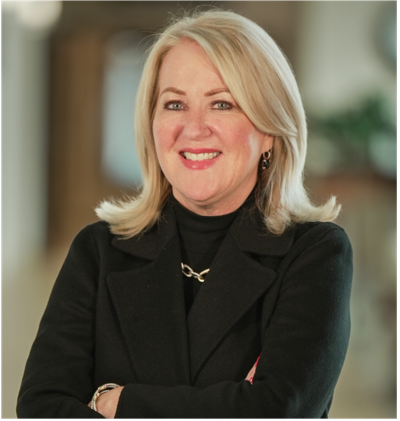Here are two important numbers Virginians should remember in relation to the congressional budget reconciliation process: nearly 2 million and $24.8 billion.
The first is the number of Virginians enrolled in Medicaid and FAMIS. The second is the estimated amount of Medicaid funding the commonwealth would lose in the years ahead under the U.S. Senate reconciliation plan.
Many of the people enrolled in Medicaid and FAMIS — including children, pregnant women, adults, disabled and elderly individuals — would be harmed by health policy and funding changes proposed in the Senate. If enacted, these changes would decimate Virginia’s health care systems by depriving them of vital funding that sustains and stabilizes hospital operations so our teams of doctors, nurses and clinicians can provide round-the-clock care to patients and families.
At issue is the U.S. Senate’s troubling approach on key provisions in the reconciliation plan that address Medicaid “provider assessments” and “state directed payment programs” (DPP). These programs create funding partnerships for Medicaid patients among Virginia hospitals, state government, and the federal government. These hospital-supported programs help strengthen access to care and enhance Medicaid reimbursement rates for health providers.
People are also reading…
Virginia’s provider tax arrangement is an assessment on hospital revenue that helps draw down federal funds to improve inadequate Medicaid reimbursement rates. Historically, Medicaid reimbursement is below the costs of care. Provider taxes help fund the state Medicaid program. The DPP system generates Medicaid funding that is distributed based on hospital Medicaid patient volume, so large health systems support rural and urban hospitals serving communities with a sizable share of Medicaid patients.
Overall, hospitals have contributed more than $3 billion to fund Medicaid expansion, including $572 million this year, to help 630,000 Virginians gain health coverage. Augusta Health is among those hospitals.
This spring, lawmakers in the U.S. House of Representatives approved a version of the reconciliation plan that preserved the existing provider tax program formula for allocating Medicaid dollars to states and protected existing DPP programs. In contrast, Senate changes to the House framework raise serious concerns about how it would imperil community health, hospital stability, patient access to care, and the economy.
The Senate plan would cost Virginia more than $2 billion in Medicaid funding annually through changes to the provider tax and DPP, which contributes as much as 33 percent of net revenue for some rural hospitals.
Just last week, 16 U.S. House Republicans sent a letter to Congressional leaders expressing their opposition to the Senate approach on Medicaid funding and provider tax cuts. Two of the letter’s signatories are members of Congress from Virginia, which suggests there is growing awareness of the risks posed by the Senate plan and the lives it could impact.
Across the Shenandoah, É«¶ŕ¶ŕ, and New River Valleys, 231,000 people are enrolled in Medicaid, including more than 85,000 in the expansion population. These are people who live in your community. They also include some of the same voters who helped reelect President Trump. In 2024, Augusta County awarded 73% of the vote to the President. In É«¶ŕ¶ŕ County, Trump won 60.4% of the vote. Election results from counties across this region show similar numbers.
Making the kind of sweeping changes the Senate proposes would have negative consequences for the very people who elected the president and Republican members of Congress. That’s because many people in rural communities rely on Medicaid.
While roughly 1 in 5 Virginians are on Medicaid, program enrollees account for an outsized share of health care service utilization. At Virginia’s rural hospitals, Medicaid and Medicare patients equate to more than 73% of annual inpatient hospital admissions. In Virginia nursing homes, 62% of residents are on Medicaid.
Across Virginia, hospitals invest $62 billion into the economy, provide more than 140,700 good jobs, and handle millions of emergency, acute care, and psychiatric visits annually. This good work is put at great risk with the proposed Senate reconciliation bill. Having a stable, effective Medicaid program helps support those hospital functions so they can continue to provide care in the communities they serve.
Congress should be careful not to jeopardize that delicate balance by pursuing dramatic policy change that will cause more harm than good.
Mary N. Mannix, is president and CEO of Augusta Health. She is a master’s prepared nurse and additionally holds an MBA degree. Augusta Health in Fishersville is a health system that employs more than 2,800 people and includes a 255-bed acute care hospital and dozens of affiliated community practices and including 280 physicians and advanced practice providers.
















